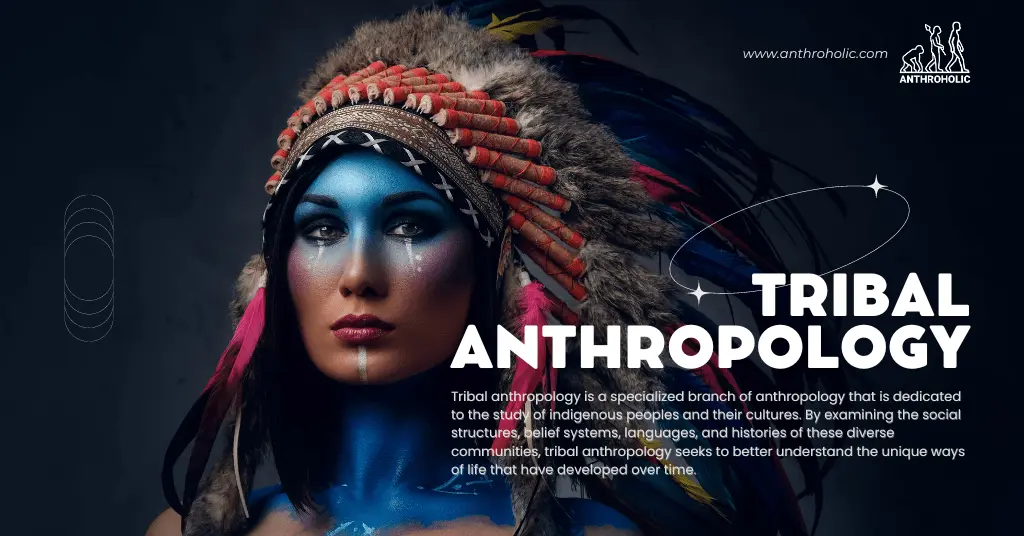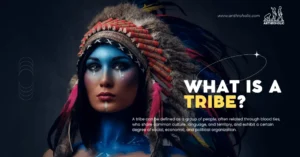AI Answer Evaluation Platform Live Now. Try Free Answer Evaluation Now
Tribal Anthropology
Tribal anthropology is a specialized branch of anthropology that is dedicated to the study of indigenous peoples and their cultures. By examining the social structures, belief systems, languages, and histories of these diverse communities, tribal anthropology seeks to better understand the unique ways of life that have developed over time. This discipline has evolved significantly over the past century, with a greater focus on collaboration, advocacy, and the acknowledgement of indigenous perspectives.

The Importance of Studying Tribal Anthropology
- Cultural Preservation: Indigenous cultures possess a wealth of knowledge and unique practices that are invaluable to the global community. Tribal anthropology plays a crucial role in preserving and documenting these traditions, ensuring that they are not lost to history due to rapid globalization and cultural homogenization (Lewis, 2014).
- Contribution to Anthropological Theory: Tribal anthropology has significantly contributed to the development of anthropological theory. By examining the diverse range of indigenous cultures and societies, researchers are able to identify patterns and gain insights into broader human behavior and social organization (Haviland et al., 2016).
- Advocacy and Empowerment: Tribal anthropology has also played an important role in advocating for the rights and interests of indigenous peoples. Researchers in the field often collaborate with local communities, supporting their efforts to preserve their cultures and maintain control over their ancestral lands (Smith, 2012).
Historical Overview
Early Studies: The study of tribal anthropology dates back to the 19th century when early European explorers and colonial administrators began documenting the cultures and customs of indigenous peoples they encountered. This early research was often driven by a sense of curiosity and fascination, but it was also marked by ethnocentrism and a belief in the superiority of Western culture (Kuper, 1999).
| Name | Contribution |
|---|---|
| Lewis Henry Morgan | Developed the concept of cultural evolution and conducted early research on Native American societies (Morgan, 1877). |
| Edward B. Tylor | Considered the founder of modern anthropology, Tylor focused on comparing cultural practices across different societies (Tylor, 1871). |
| Franz Boas | Challenged the idea of cultural evolution and emphasized the importance of understanding each culture on its own terms (Boas, 1928). |
The Emergence of Collaborative and Advocacy-Oriented Approaches
In the mid-20th century, the field of tribal anthropology began to shift away from the ethnocentric perspectives that had previously dominated the discipline. This period saw the emergence of new research methods and approaches that emphasized collaboration with indigenous communities and the recognition of their rights and interests (Rappaport, 1993).
Research Methods in Tribal Anthropology
- Ethnography: Ethnography is the primary research method employed by tribal anthropologists. This approach involves the in-depth study of a specific culture or community through participant observation, interviews, and the analysis of artifacts, texts, and other forms of cultural expression (Hammersley & Atkinson, 2007).
- Collaborative and Participatory Research: Tribal anthropology has increasingly embraced collaborative and participatory research methods that involve working closely with indigenous communities. This approach helps to ensure that research is respectful of local customs and knowledge, while also empowering community members to take an active role in the research process (Lassiter, 2005).
- Interdisciplinary Approaches: Tribal anthropology often involves the integration of multiple disciplines, such as linguistics, archaeology, and ecology. This interdisciplinary approach allows researchers to gain a more comprehensive understanding of the complex and interconnected aspects of indigenous cultures and societies (Campbell, 2011).
Ethical Considerations in Tribal Anthropology
- Informed Consent and Community Engagement: Obtaining informed consent from the communities being studied is a crucial ethical consideration in tribal anthropology. Researchers must ensure that they fully explain the purpose and potential implications of their research, and that community members have the opportunity to ask questions and provide input (Fluehr-Lobban, 2013).
- Respecting Cultural Sensitivities: Tribal anthropologists must be sensitive to the cultural norms and values of the communities they study. This includes respecting taboos, sacred spaces, and ceremonies, as well as acknowledging the potential impact of their research on the communities involved (Hume & Mulcock, 2004).
- Intellectual Property Rights: The protection of indigenous intellectual property rights has emerged as a significant ethical concern in tribal anthropology. Researchers must be careful not to appropriate or exploit the traditional knowledge, arts, or practices of the communities they study, and should strive to ensure that any benefits derived from their research are shared equitably with the communities involved (Greaves, 1994).
Conclusion
Tribal anthropology plays a vital role in documenting and preserving the cultural diversity and complexity of indigenous peoples around the world. By adopting collaborative, participatory, and interdisciplinary research methods, tribal anthropologists are able to gain valuable insights into the unique customs, practices, and worldviews of these communities, while also advocating for their rights and interests. As the discipline continues to evolve, it is essential that researchers remain mindful of the ethical considerations that underpin their work, ensuring that their research is respectful, sensitive, and conducted in the spirit of collaboration and mutual understanding.
See Also
References
- Boas, F. (1928). Anthropology and Modern Life. Norton.
- Campbell, L. (2011). The Oxford Handbook of Linguistic Fieldwork. Oxford University Press.
- Fluehr-Lobban, C. (2013). Ethics and Anthropology: Ideas and Practice. AltaMira Press.
- Greaves, T. (Ed.). (1994). Intellectual Property Rights for Indigenous Peoples: A Sourcebook. Society for Applied Anthropology.
- Hammersley, M., & Atkinson, P. (2007). Ethnography: Principles in Practice. Routledge.
- Haviland, W. A., Prins, H. E. L., Walrath, D., & McBride, B. (2016). Anthropology: The Human Challenge. Cengage Learning.
- Hume, L., & Mulcock, J. (2004). Anthropologists in the Field: Cases in Participant Observation. Columbia University Press.
- Kuper, A. (1999). The Invention of Primitive Society: Transformations of an Illusion. Routledge.
- Lassiter, L. E. (2005). The Chicago Guide to Collaborative Ethnography. University of Chicago Press.
- Lewis, J. P. (2014). The Importance of Indigenous Knowledge in the Preservation of Traditional Cultures. In U. Oswald Spring et al. (Eds.), Social Systems and Design (pp. 253-266). Springer.
- Morgan, L. H. (1877). Ancient Society. Henry Holt.
- Rappaport, R. A. (1993). The Anthropology of Trouble. American Anthropologist, 95 (2), 295-303. https://doi.org/10.1525/aa.1993.95.2.02a00010
- Smith, L. T. (2012). Decolonizing Methodologies: Research and Indigenous Peoples. Zed Books.
- Tylor, E. B. (1871). Primitive Culture: Researches into the Development of Mythology, Philosophy, Religion, Language, Art, and Custom. John Murray.
Further Reading
- Bodley, J. H. (2017). Cultural Anthropology: Tribes, States, and the Global System. Rowman & Littlefield.
- Kuper, A. (2003). The Return of the Native. Current Anthropology, 44(3), 389-402. https://doi.org/10.1086/368120
- Nadasdy, P. (2007). The Gift in the Animal: The Ontology of Hunting and Human-Animal Sociality. American Ethnologist, 34(1), 25-43. https://doi.org/10.1525/ae.2007.34.1.25
- Napoleon, H. (1991). Yuuyaraq: The Way of the Human Being. Alaska Native Knowledge Network.
